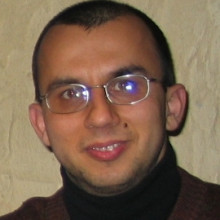HellasQCI project aims to deploy advanced National QCI systems and networks. Its architecture comprises of three metropolitan test- sites located at major cities of Greece namely: ΗellasQCI-Central(Athens), HellasQCI-North(Thessaloniki) and HellasQCI-South (Heraklion-Crete). Each test-site is divided into Governmental and Industrial testbeds, which allow the project to investigate the field- deployment of QKD technologies in a plethora of realistic scenarios and use cases addressing National Security, Public Health, Critical Infrastructure and ICT sector. An additional Educational testbed will allow the development of new quantum technologies, provide a sandpit for SME innovation, and offer Greece a futureproof extension towards Quantum Internet. It will also serve as a comprehensive training environment for technical, research staff and end users. For inter-test-site links and international connection with other EuroQCI members, HellasQCI will exploit three Greek observatories, which constitute a national asset and have been selected by ESA to be upgraded as Optical Ground Stations with QKD capabilities. The aim of HellasQCI is also to create a community from all interested national stakeholders, gather expertise and share knowhow on the application of quantum technologies. The HellasQCI consortium involves key research institutes and universities of Greece, which with unique expertise that are able to address the needs for an operational HellasQCI infrastructure. Governmental authorities including the Ministry of Digital Governance, the Hellenic Police, the Army and the National Intelligence Agency together with industrial partners, and SMEs can ensure the sustainability of HellasQCI. HellasQCI plans to cooperate with other EU Member States in order to boost Europe's scientific and technological capabilities in cybersecurity and quantum technologies, and to this end, it has already made partnerships with AT, LU, IE, ML, BG, PL, CY.



